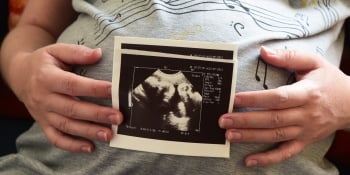Published: 16.01.2019

The European Parliament adopted the report of the Committee on Civil Liberties, Justice and Home Affairs (LIBE) on the rule of law fact-finding mission in Poland. LIBE members held a series of discussions on the reforms of the judiciary and related disputes in Poland in recent years. However, during its visit to Warsaw, the Commission went beyond the framework of the rule of law control procedure, touching upon i.a. the issue of the availability of abortion and contraception.
In December 2017, the European Commission launched a procedure to monitor the rule of law against Poland, accusing our country of violating EU law as a result of the adoption of amendments to, among others, the Law on the system of common courts, the Act on the Supreme Court and the Act on the National Council of the Judiciary. Under EU law (Article 7(1) of the Treaty on European Union), the Council, by a majority of 4/5 of its members, may, with the consent of the European Parliament, identify a risk of a serious breach of the rule of law in a country subject to the procedure. In September 2018, a delegation of members of the LIBE Committee arrived in Poland “in order to better understand the judicial reforms in Poland, their objectives and their impact on the rule of law in Poland”. Meetings were organized with representatives of the government, the Sejm and the Senate, political parties, the Ombudsman, representatives of the Supreme Court and legal professions, the Organization for Security and Cooperation in Europe, journalists and delegates of social organizations, including Tymoteusz Zych, PhD, and Karina Walinowicz from Ordo Iuris. In addition, Mr. Zych, at the invitation of the LIBE Committee, took part in a discussion on this subject in the European Parliament. As early as 2016, the Institute published a comprehensive report in English showing the actual state of the rule of law in Poland, and during meetings with the Commission it presented analyses of changes in the judicial system in the last several months. A brief report from the Ordo Iuris meeting was included in the LIBE report.
In its report, however, the Commission has gone beyond the framework of the so-called rule of law procedure, including in it issues related to health and reproductive rights in Poland, although they remain outside the competence of the European Union. The European Parliament delegation met with Krystyna Kacpura, Executive Director of the Federation for Women and Family Planning, and Agnieszka Dziemianowicz, activist of the “Black Protest”. During the talks, representatives of the abortion movement, without relying on any research and data, put forward a number of controversial theses concerning the situation of women in Poland. Krystyna Kacpura stated that Polish women “do not have basic reproductive rights”, including access to contraception, and that the abortive killing of children is hindered in accordance with the exceptions provided for in the Act on family planning, protection of the human fetus and conditions for acceptance of abortion of 1993.
Subsequently, although EU law allows Member States to prohibit the marketing of early abortion drugs completely, Krystyna Kacpura cited difficult access to the so-called “day after” pill as evidence of alleged violations of women’s rights in Poland. She also claimed that pregnant women have difficult access to prenatal tests, and doctors and pharmacists abuse the conscience clause in order not to sell contraceptives. Agnieszka Dziemianowicz added that after the fall of communism, the majority of political parties, striving for the support of the Catholic Church, are in favor of “radical” “pro-life” postulates and that “basic reproductive rights of women”, including the right to so-called sexual education, are not supported. Significantly, in 2016 the Sejm rejected a citizens’ bill prohibiting abortion altogether.
"According to Agnieszka Dziemianowicz, as a result of the decision of the Minister of National Education, children in schools do not have access to sex education, and parents must turn to organizations such as the Federation for Women and Family Planning to conduct classes in this area. The activist of the “Black Protest” omitted the fact that extracurricular activities conducted in Polish educational institutions often propagated extremely permissive model of sex education and often took place without the knowledge and consent of parents, which caused their protests”, commented Tymoteusz Zych from the Board of the Ordo Iuris Institute.
“The claims of Krystyna Kacpura and Agnieszka Dziemianowicz were not reliably verified, and at the same time they were duplicated in the conclusions of the LIBE mission to Poland as one of the evidence of alleged violation of the rule of law in Poland. Moreover, allegations raised by the activists were not mentioned by the delegation of the LIBE Committee in talks with the government, which, in a letter to the LIBE Committee, was pointed out by the Permanent Representative of the Republic of Poland to the European Union, Andrzej Sados. Thus, a one-sided, untrue image of Poland as a country unfriendly to women was created. At the same time, the mission of the LIBE Committee was used to push forward demands of the pro-abortion lobby and LGBT in Poland”, stated Magdalena Olek, Deputy Director of the Ordo Iuris Center for International Law.

· The European Parliament adopted a resolution calling for the inclusion of the so-called right to abortion in the Charter of Fundamental Rights of the European Union.

· The anti-life projects proposed by our ruling coalition are only the beginning of a political process leading to the normalisation of the mass killing of unborn children.
· The French law of 1974, which was only supposed to open the floodgates to prenatal killing for women in distress, in fact established a new legal foundation through which almost a quarter of a million children lose their lives in France every year.

· Abortion advocates manipulate human rights slogans which remain relevant to Polish citizens in order to force the public into supporting abortion.